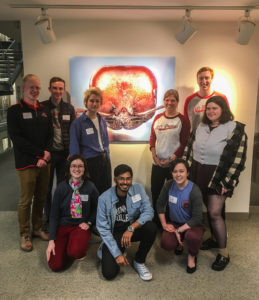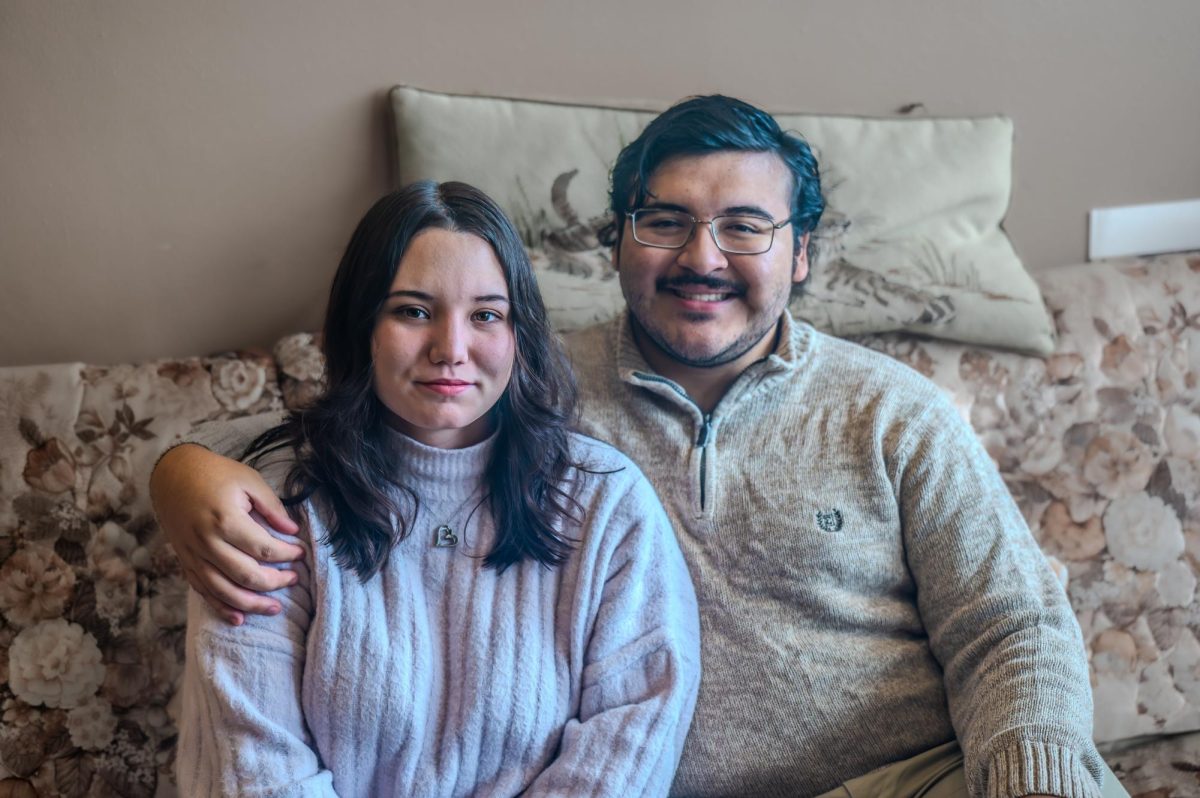By Eva Hill
hilleva@grinnell.edu
The 2019 Midwest Regional Peer Educator Conference, hosted by the Laurie Hamre Center for Health and Wellness at Macalester College, took place on Saturday, April 6. The conference featured presentations from student wellness and peer education programs from a variety of Midwestern schools, as well as an interactive keynote presentation and a roundtable discussion session.
The keynote speaker was Kate Elwell, a health promotion specialist from Boynton Health at the University of Minnesota Twin Cities. Elwell’s presentation focused on use of the socio-ecological model, which examines different levels of social and institutional influence on routine and behavior. Elwell explained the different levels of the model (individual, interpersonal, college/university, community and public policy), and then students and staff worked in small groups to examine a wellness-related topic through the lens of the model applied to their institution.
Grinnell staff and students gave two of the small-group presentations at the conference. In the first breakout session, Emily Howe ‘16, Grinnell post-baccalaureate for sexual respect and harm reduction, and Lily Dawson ‘21, co-leader of Body Positivity Club, presented “Cross Campus Collaborations: Considerations and Context,” which focused on the now annual Sex Week event. Howe and Dawson discussed the ways in which 14 different campus organizations collaborated to make the week a success, and Dawson also talked about the multi-group partnership that occurred during the creation of Body Positivity Club.
In the third breakout session of the day, Jen Jacobsen ‘95, director of wellness and prevention at the College, Paul Cover ‘21, co-chair of the Grinnell Student-Athlete Advisory Committee, and Jake Conran ‘20, student athlete mentor co-leader, presented “We’re on the Same Team: Building Bridges between Athletics and Mental Health.”
There were ten other small-group presentations, presented by the University of Minnesota Twin Cities, University of Wisconsin Eau Claire, Luther College, Macalester College, Hamline University, St. Cloud State University, University of Minnesota Duluth, Carleton College and St. Olaf College. The presentations covered a wide variety of topics, some specific and some more generalized. In the first session, students from the University of Wisconsin Eau Claire discussed their analysis of advertisements created by bars close to the campus, from which they determined four basic categories of appeal in alcohol advertisement: acceptance, affordability, attractiveness, and availability. In the second session, students and staff from St. Cloud State University presented their “Hey, You OK?” campaign, an initiative designed to help people start difficult conversations with others on campus.
This is the first time that students have attended the conference, though Jacobsen and Howe both attended last year. This increased involvement emphasizes the continued presence of wellness-related programming on campus, especially the existence of the Peer Educator program. Grinnell Peer Educators are students who are selected to act as leaders in health and wellness on campus. The program is now in its fifth semester, and was preceded by the position of Hall Wellness Coordinator, a job held by one student per dorm cluster that existed for four years, ending in 2015.
Howe called the program a “great opportunity” and said that its effectiveness comes from the way that students are the visible leaders in Peer Educator programming.
“Grinnell students like working with Grinnell students; they like hearing things from Grinnell students. … Talking about health and wellness, it’s going to be a lot more effective if a student does it, comes up to you, has a conversation, leads a workshop with you about healthy alcohol use, as opposed to an administrator, someone who’s older, where it feels like someone’s telling you what to do as opposed to having a conversation with you,” she said.




















































